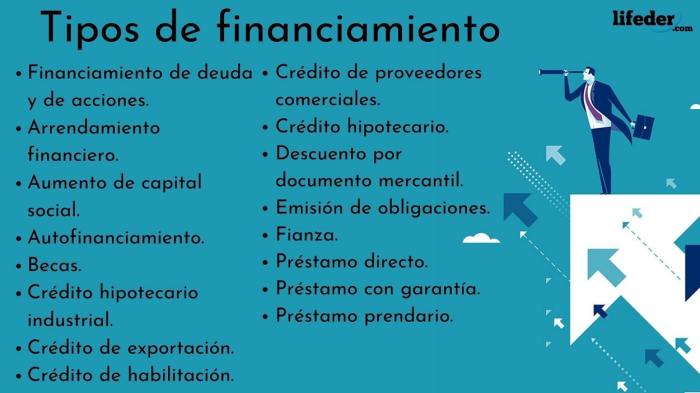Exploring the realm of home renovation financing options can be a daunting yet exciting journey. From secured loans to personal loans, the possibilities are vast. Let’s delve into the intricacies of financing your dream home renovation project and uncover the best options available to you.
Types of Home Renovation Financing
When it comes to financing your home renovation project, there are various options available to help you fund the improvements you desire. From personal loans to home equity loans, each type of financing has its own advantages and disadvantages. Let’s explore some of the common options:
Secured vs. Unsecured Loans
Secured loans are backed by collateral, such as your home or other assets, which can result in lower interest rates. Unsecured loans, on the other hand, do not require collateral but often come with higher interest rates due to the increased risk for the lender.
Personal Loans vs. Home Equity Loans
Personal loans are unsecured loans that can be used for various purposes, including home renovations. They are typically easier and faster to obtain but may have higher interest rates compared to home equity loans. Home equity loans, on the other hand, use your home as collateral, allowing for potentially lower interest rates, but putting your home at risk if you default on the loan.
HELOCs, Cash-Out Refinancing, and Renovation Mortgages
HELOCs (Home Equity Line of Credit) allow you to borrow against the equity in your home, similar to a credit card. Cash-out refinancing involves refinancing your existing mortgage for a higher amount and using the difference for renovations. Renovation mortgages, such as FHA 203(k) loans, combine the cost of the home purchase and renovation into one loan.
Qualifications and Requirements

When considering applying for home renovation financing, it is essential to understand the qualifications and requirements needed to secure these loans. Meeting specific criteria will determine your eligibility for various financing options.
Minimum Credit Score
- For most renovation loans, a minimum credit score of 620 is typically required.
- Some lenders may have stricter requirements, so it is essential to check with each lender for their specific credit score criteria.
Income and Documentation Requirements
- Lenders will assess your income to ensure you have the financial capacity to repay the loan.
- Income verification documents such as pay stubs, tax returns, and bank statements may be required during the application process.
- Self-employed individuals may need to provide additional documentation to verify their income.
Loan-to-Value Ratio Impact
- The loan-to-value (LTV) ratio is a crucial factor in determining eligibility for renovation financing.
- Lenders typically prefer a lower LTV ratio, which means you have more equity in your home.
- A higher LTV ratio may result in higher interest rates or the need for private mortgage insurance (PMI).
Interest Rates and Terms
When it comes to home renovation financing options, understanding the interest rates and terms is crucial for making informed decisions. Interest rates play a significant role in determining the total cost of borrowing money, while loan terms dictate the repayment period.
Interest Rate Determination
Interest rates for renovation loans are typically determined based on factors such as the borrower’s credit score, the loan amount, and the loan term. Lenders may also consider the current market interest rates and economic conditions when setting the rate for a specific loan.
Difference Between Fixed-Rate and Variable-Rate Loans
Fixed-rate loans have a constant interest rate throughout the loan term, providing predictability in monthly payments. On the other hand, variable-rate loans have interest rates that can fluctuate based on market conditions, leading to potential changes in monthly payments.
Varying Loan Terms
The loan term, or repayment period, can vary depending on the financing option chosen. Shorter loan terms typically come with lower interest rates but higher monthly payments, while longer loan terms may have higher overall interest costs but lower monthly payments.
Impact of Interest Rates and Terms
The total cost of financing over time is influenced by both interest rates and loan terms. For example, a lower interest rate can result in lower total interest payments over the life of the loan, while a longer loan term may lead to higher overall interest costs despite lower monthly payments.
Application Process and Approval Timeline

When applying for a home renovation loan, there are several steps involved in the process to ensure a smooth application and approval timeline. It is essential to understand the documentation required, the approval process, and the timeline for receiving funds.
Documentation Needed
- Proof of income: Recent pay stubs, tax returns, or bank statements.
- Identification: A valid ID such as a driver’s license or passport.
- Property information: Details about the property you intend to renovate.
- Credit history: Your credit score and report to assess your creditworthiness.
Approval and Disbursement Timeline
- For personal loans: Approval can take a few days to a week, and funds are typically disbursed within a week after approval.
- For home equity loans: Approval may take 2-4 weeks, and funds are usually disbursed within 30 days after approval.
- For home equity lines of credit (HELOC): Approval may take 3-6 weeks, and funds can be accessed as needed during the draw period.
Tips for Expediting the Approval Process
- Ensure all required documentation is complete and accurate to avoid delays in the approval process.
- Maintain a good credit score to increase the chances of quick approval and favorable terms.
- Communicate promptly with the lender and respond to any requests for additional information promptly.
- Consider pre-qualifying for a loan to streamline the application process and get a better idea of your financing options.
Last Recap
As we conclude our discussion on the best home renovation financing options, it becomes evident that with the right knowledge and resources, achieving your renovation goals is within reach. By understanding the various types of financing, qualifications needed, interest rates, and application processes, you are better equipped to make informed decisions for your home improvement projects.
Answers to Common Questions
What is the minimum credit score required for renovation loans?
The minimum credit score needed for renovation loans varies depending on the financing option. Typically, a score of 620 or higher is required for most loans.
How do loan terms impact the total cost of financing over time?
Longer loan terms may result in lower monthly payments but higher overall interest costs, while shorter terms lead to higher monthly payments but lower total interest expenses.
What documentation is usually required during the application process for renovation loans?
Documentation such as proof of income, credit history, identification documents, and details of the renovation project are commonly required during the application process.

